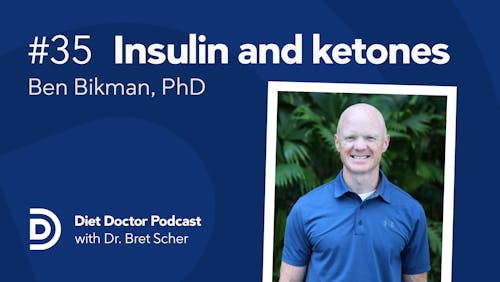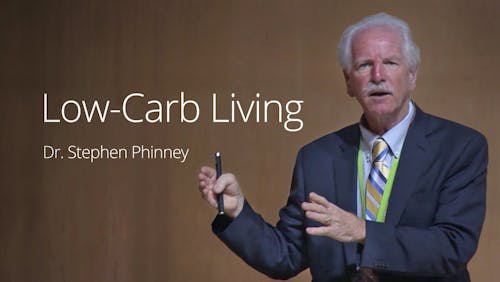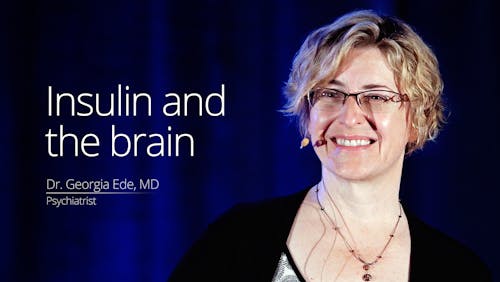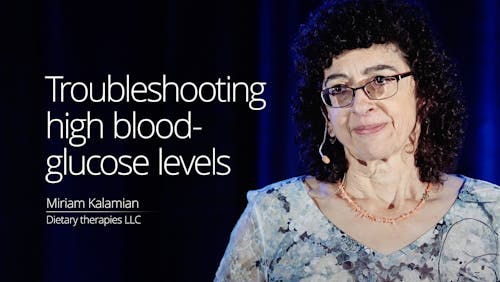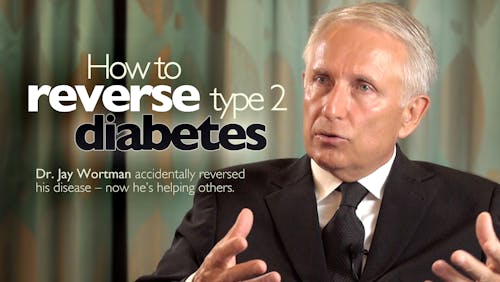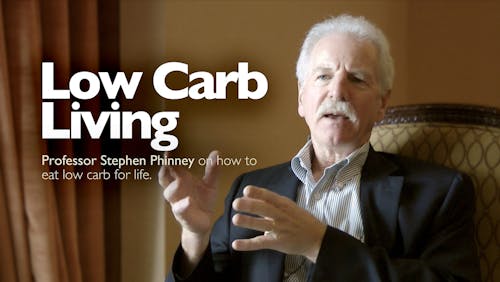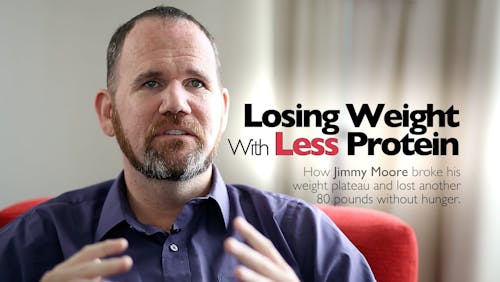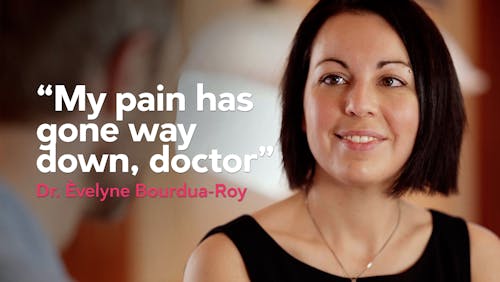IBS and the keto diet
But the 36-year old IT supervisor from California also discovered another welcome, unexpected benefit from her new way of eating: it almost completely eliminated her long-standing irritable bowel syndrome (IBS).
Within a month of starting keto, her gut was remarkably calm, quiet, and cooperative for the first time in decades.
“Honestly, I’d never had a normal bowel movement for almost my whole life,” said Atkins-Reeves, who alternated between extreme constipation and diarrhea (referred to as IBS-C and IBS-D). Her doctor’s solution was to give her drugs for both, which she switched between.
Changing to a low-carb, high-fat diet completely resolved her constipation and reduced her formerly frequent attacks of diarrhea to less than once a month.
“My ketogenic diet now completely controls my IBS symptoms,” she says. “And if I do ever cheat and indulge in some of my old triggers like ice cream or fruit, it doesn’t seem to cause an attack anymore. In the past, I would have been in the bathroom within an hour.”
Most of us are ecstatic to broadcast our keto successes with weight loss or reversing type 2 diabetes. We talk to friends and family enthusiastically about the pounds melting off, our blood sugar normalizing, and our minds becoming clearer. We post before-and-after pictures on Facebook and explain how eating meat, eggs, and butter is giving us a new lease on life.
But go into rapturous details about keto’s impact on our bowels? Not so much!
Talking frankly and honestly about gastrointestinal issues is squeamish stuff, the last taboo. It’s tough for some to share details about how a once-churning caldron of GI distress has quelled or painful constipation has eased, simply by switching to a low-carb diet.
Low-carb physicians share experiences from IBS patients
For many, relief from IBS comes as a welcome surprise. Improvements in symptoms are commonly reported in emails to Diet Doctor. Many keto-themed blogs discuss the phenomenon, as do Reddit discussion threads.
So has Dr. Andreas Eenfeldt. “I remember one male patient in his late 20s who had suffered crippling IBS symptoms for most of his life,” he said. “I suggested he try a low-carb, high-fat diet, gave him a one-page pamphlet, and he agreed to give it a try. It was a quick ten-minute consultation.
When I called him two weeks later, his GI symptoms were not only completely gone, but for the first time he could remember, he’d also lost a surprising amount of excess weight. And all without a single medication.”
Dr. Evelyne Bourdua-Roy agrees. “It is super common,” she says. “Most patients have given up hope of getting treatment, it seems. They’ve tried a lot of stuff, they’ve had a colonoscopy, they’ve had tests for food intolerances and celiac disease — all with no answers.”
But when they go on a low-carb diet, most see an improvement within two weeks or less, she says.
In addition to most of Dr. Bourdua-Roy’s patients having improvement or complete disappearance of their IBS symptoms, she has experienced it herself. “I’ve had a complete resolution of bloating, pain and excessive gas.”
I have, too. I now consider my mild IBS completely cured on the ketogenic diet. In my very first post for Diet Doctor, I described how going low carb resolved not only my prediabetes but resulted in barely a grumble from my sometimes grumpy gut.
Like Atkins-Reeves, it seems the diet has even reset my underlying intestinal tolerance. Trigger foods that used to bother me, like runny eggs or raw spinach, don’t give me trouble anymore.
Could restricting carbohydrates be the key to your happier gut?
Read on for more information about what is known, and not known, about IBS in general — and when carbohydrate restriction might be just the solution to tame your tumultuous tummy.
1. IBS is very common and very disruptive
Between 10-20% of people worldwide are estimated to have IBS, and two-thirds of all cases are believed to occur in women.Dr. Bourdua-Roy says that silence is very common among her patients. “Most of my new patients don’t even mention it. They’ve tried numerous modifications to their diet, so most think it’s useless to make another effort.”
The key defining symptoms of IBS are recurrent abdominal bloating, pain, diarrhea and/or constipation. Excessive flatulence, cramping, heartburn, nausea, vomiting, exhaustion, sweating, shivering, anal itching, and sudden incontinence can be part of the not-so-pretty picture, too.
A few serious medical conditions can have symptoms similar to IBS: celiac disease, inflammatory bowel disease (Crohn’s and ulcerative colitis), and certain types of cancer, especially colon or ovarian cancer.
While these conditions are much less common than IBS, they should be ruled out before settling on an IBS diagnosis, international IBS guidelines say.
The key factor that distinguishes IBS from other gastrointestinal issues is that diagnostic tests can’t find anything wrong. This is why it’s often called a “functional” disorder, meaning it is based on symptoms after other causes have been ruled out.
The takeaway: If IBS is causing a lot of distress, especially if symptoms are new, have a doctor rule out other more serious health issues first. But if IBS is the eventual diagnosis, you’re not alone. And a low-carb, high-fat diet may very well help.
2. Subtle physiologic differences in IBS
For decades, IBS symptoms were often seen by the medical profession as largely psychosomatic — all in one’s head — which frequently caused sufferers to be labeled as neurotic, anxious, or depressed.
Chronic stress is known to contribute to and worsen the disease.
These include an altered immune system, the presence of low-grade inflammation, the proliferation of nerve fibers in the intestinal wall, or pre-existing genetic susceptibility.
3. Restricting FODMAPs for IBS

In recent years the low-FODMAP diet has been getting a lot of research attention for its ability to improve IBS symptoms.
FODMAP is an acronym for fermentable oligosaccharides, disaccharides, monosaccharides and polyols. That unwieldy name describes types of short-chain carbohydrates found in many fruits, vegetables, legumes, grains, dairy products, and some processed foods.
What FODMAPs have in common is that they tend to ferment in the small intestine, causing gas and bloating. They are also poorly absorbed by the gut wall and cause fluid to remain in the intestinal space, which can lead to diarrhea in those with IBS-D.
FODMAPs include fructose and fructans found in many fruits, vegetables and wheat products; lactose, a sugar found in milk and some dairy products; galactooligosaccharides (GOSs) found in beans and lentils; and sugar alcohols (polyols) such as the sweeteners sorbitol, xylitol and mannitol.
In recent years, following a low-FODMAP diet — under the guidance of a registered dietitian — has gained acceptance as a first-line therapy for IBS.
However, along with acknowledging low FODMAPs as an option, most specialists still also recommend more traditional advice for IBS: small meals, regular food intake and avoidance of coffee and fat.
Dr. Ted Naiman notes that the general very low-carb diet is easier. “No carbs equals no fermentation equals no IBS. It is simple and it works great.”
The takeaway: Ample evidence now exists that short-chain carbohydrates called FODMAPs can cause problems in people with IBS, but the intricacies of the diet are challenging. A low-carb diet is a simpler way to eliminate many of the common FODMAPs.
4. Research evidence for a very low-carbohydrate or ketogenic diet
In 2009 a team at the University of North Carolina that included Dr. Eric Westman examined a diet containing less than 20 grams of carbs a day for IBS.
During the study, 13 people with diarrhea-predominant IBS (IBS-D) started with a standard American diet for two weeks, then switched to a very low-carb diet for four weeks. At the end of the study 10 participants (77%) had significantly less abdominal pain and diarrhea, along with improved quality of life.
“A very low-carb diet, or LCHF, is basically a low-FODMAP diet with even fewer carbs,” said Dr Westman.
In a recent study from New Zealand, people were randomly assigned to follow a diet providing either 5, 15 or 25% of calories from carbs. All three groups reached ketosis and reported resolution of their abdominal bloating and cramping.
And a randomized clinical trial now recruiting in Sweden will assign IBS patients to one of three diets for four weeks: a standard diet, a low-FODMAP diet, or a very low-carbohydrate diet.
The takeaway: Anecdotal evidence on carb restriction for IBS abounds, and low-carb physicians consistently see symptoms improve in their patients. Formal research is growing, and studies suggest improvement can occur within a few weeks of starting low carb.
“The fact is that you will know quickly whether this works for you,” says Dr. Bourdua-Roy. “Try it for two weeks; take the Diet Doctor challenge. You will get the answer!”
More
More on digestive issues
There’s one digestive issue that sometimes does not improve on keto, it may occasionally even get worse: constipation. If needed, use our guide below.
More on digestive issues, how they can be improved and stories about success
Top keto videos












